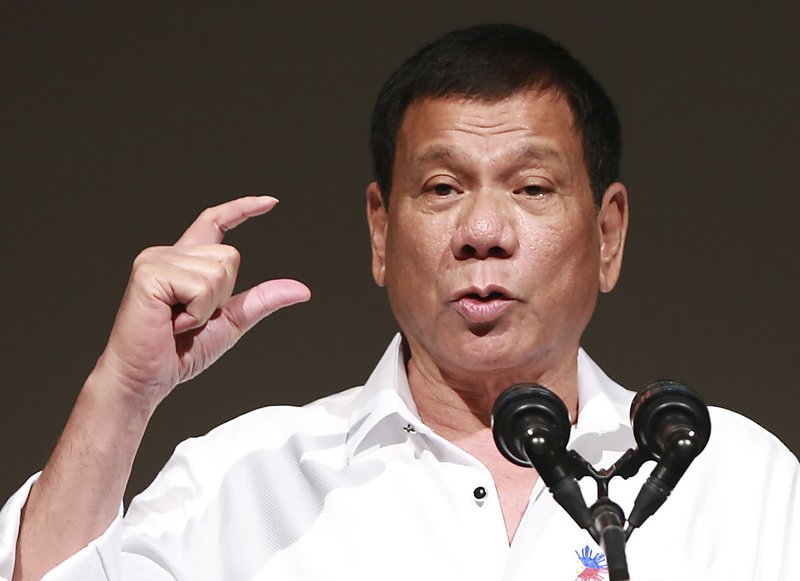BAYBAY, Philippines -- Philippine police killed a mayor in his jail cell in a purported gunbattle Saturday, the second killing in a week of a politician linked to illegal drugs under President Rodrigo Duterte's brutal crackdown.
Rolando Espinosa Sr., the mayor of the town of Albuera in the central province of Leyte, and a fellow inmate identified as Raul Yap were shot dead before dawn after they fired at officers who staged a raid in search of firearms and illegal drugs in the provincial jail in Leyte's Baybay city, police said.
The provincial police chief, Juvy Espinido, told a Manila radio station that both men had "resisted" police, but he said he could not provide further details.
Later, the police said they had found two handguns in the jail cell. Bags containing what was believed to be methamphetamine, marijuana and drug paraphernalia were also found inside the cell, the police said.
Calls to spokesmen for the national police in Manila were not returned.
Some officials and an anti-crime group have called for an investigation into the circumstances of the killings, wondering how the mayor and the other inmate got hold of guns and drugs and what prompted them to clash with several policemen while in detention.
"Offhand, I can smell extrajudicial killing," said Philippines Sen. Panfilo Lacson, a former national police chief, adding that the suspicious deaths were the "biggest challenge" to the credibility of the national police force, which is undertaking the anti-drug crackdown.
In October, another mayor, Samsudin Dimaukom, and nine of his men were reported killed in a gunbattle with police in the southern Philippines. Dimaukom, who denied being involved in narcotics, and his men had been stopped at a police checkpoint. The police said people in Dimaukom's party had fired on officers.
Dimaukom, Espinosa and Espinosa's son, Kerwin, were among more than 160 officials named publicly by Duterte in August as part of a shame campaign. Duterte offered no evidence of their guilt and later said some names might have been put on the list by mistake.
Rolando Espinosa surrendered to the national police chief in August in a nationally televised event, while his son went into hiding.
While Rolando Espinosa was in detention, the police raided his home and killed six of his bodyguards. The police said they found about 24 pounds of methamphetamines on the property.
Nevertheless, Espinosa was later released, but was arrested again last month after being indicted on charges of drugs and illegal possession of a firearm.
Kerwin Espinosa was arrested in the United Arab Emirates' capital city of Abu Dhabi last month on drug charges, and Philippine officials said they were seeking to have him returned.
Police estimate that more than 3,600 suspected drug dealers and users have been killed since Duterte took office on June 30. Many of those killed in the initial months of the crackdown were poor drug suspects, and police said "high-value targets," including mayors and drug lords, would be their next targets in a new phase of the crackdown that was launched late last month.
The unprecedented crackdown and killings have helped ease crime, but the U.S. and other Western governments, along with human-rights groups, have called for an end to the killings.
Duterte has lashed out at President Barack Obama and other critics, saying he was dealing with a pandemic that has afflicted politics, corrupted even generals and threatened to turn the country into what he describes as a "narco state" similar to some Latin American countries.
A statement Saturday from the office of Duterte's communications secretary, Martin Andanar, called Espinosa's death "unfortunate."
Information for this article was contributed by Felipe Villamor of The New York Times; and by staff members of The Associated Press.
A Section on 11/06/2016
